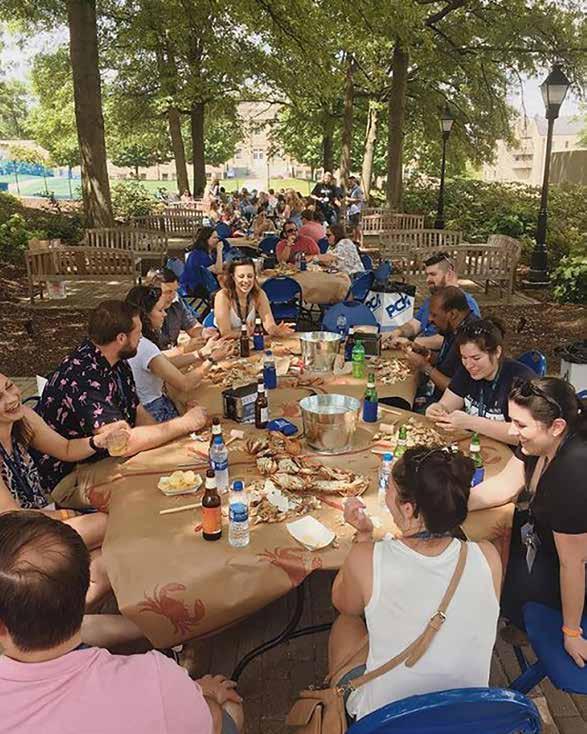
2 minute read
TIMOTHY FRITZ, PH.D
Mount Professor Timothy Fritz, Ph.D.
Time teaching at the Mount: 6 years Title: Assistant Professor of History Director, Mount 101 Summer Bridge Program
WHAT CL ASSES DO YOU TE ACH/HAVE YOU TAUGHT? I currently teach American Revolution, Atlantic Rebels (Comparative Slave Rebellions), Civil Rights, Making History, Atlantic Experience (Atlantic World History), and Pirates. I also taught America in Global Context and the American Experience in our former Veritas core curriculum.
TELL US MORE ABOUT YOUR CL ASS ON PIRATES, WHY IT'S IMPORTANT AND WHAT IT TE ACHES. Well I have to give credit to my buddy Robert Taber at Fayetteville State University. We went to graduate school together at the University of Florida, and I got the idea from him. People always wonder what the course is about because I think folks often forget pirates were actual historical figures and there were many of them throughout history. My course specifically focuses on the 17th and 18th centuries, focusing on the role pirates played in shaping labor markets and the legal development of the Atlantic world economy. It gives students a chance to engage with the colonization process without having them automatically pick the side that eventually became the United States. I pay special attention to pirates’ role as slave traders. The point of the class is to understand the tenuous relationship between terror, power and the law. The course is great for people new to history because it helps them understand the differences between history, myth and legend.
WHAT'S ONE OBJECT IN YOUR OFFICE THAT INSPIRES YOU? There is a stack of composition books in my office from the first year I directed Mount 101, our early-enrollment summer bridge program. The books contain the journal entries from our first cohort in 2017. Students wrote about their struggles at that point in their lives and their expectation of their
FEATURE STORY FALL 2019 Mount experience. Most of them have forgotten what they wrote, I’m sure, but it makes me smile when I pass them in the halls of the AC, clearly thriving in the college environment. I hope to return their journals to them upon their graduation. The program has grown from 21 students in 2017 to 36 students in 2019. I’m grateful for the opportunity for continuous investment in our first-year students, even outside of history courses.
WHAT MAKES THE STUDY OF HISTORY SO IMPORTANT? WHY IS IT VALUABLE? People like to say history informs the world today, but I think history is valuable for history’s sake, whether or not it impacts the current environment. I study history to understand myself, my place in this world and the impact those before me have made. I can’t make sense of anything without it.
TELL US ABOUT YOUR RESE ARCH. I am a historian of slavery and the Atlantic world. My research currently focuses on race and religion in the early American south. My most recent article was about enslaved Africans in the colonial South Carolina militia.
HOW DO YOU PREPARE STUDENTS TO "LIVE SIGNIFICANTLY" AT THE MOUNT? I try to help students embrace their failures. Our response to failure is how we understand our responsibility to the world. The Mount experience is tailored for students to understand where their aptitude and desire meets the needs of their community. Failure is a necessary part of that process. We don’t get it right on the first try. Our adaptability, however, shapes our eventual impact. Our liberal arts core equips students to be successful in fields that don’t even exist yet.










